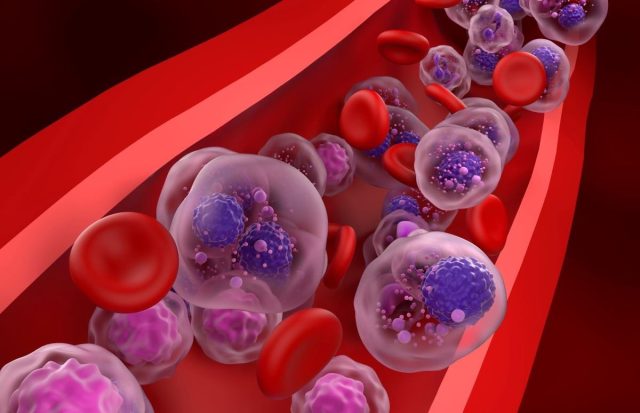Progression-free survival was not reached after a median 13 months of follow-up
By Lori Solomon HealthDay Reporter
TUESDAY, Oct. 8, 2024 (HealthDay News) — Ciltacabtagene autoleucel (cilta-cel) CAR T-cell therapy for relapsed/refractory multiple myeloma (RRMM) results in a deep and durable response, according to a study published online Oct. 4 in Blood.
Surbhi Sidana, M.D., from Stanford University in California, and colleagues reported outcomes with cilta-cel in the standard-of-care setting. The analysis included 255 patients with RRMM who underwent leukapheresis for cilta-cel manufacturing from March through December 2022 at 16 U.S. academic medical centers.
The researchers found that of the leukapheresed patients, 56 percent would not have met CARTITUDE-1 trial eligibility criteria. Manufacturing failure rates were 6 percent at first attempt and 1 percent overall, respectively. Patients had received a median of six prior lines of therapy. Among the 236 treated patients, cytokine release syndrome was seen in 75 percent (grade ≥3: 5 percent), immune effector cell-associated neurotoxicity syndrome in 14 percent (grade ≥3: 4 percent), and delayed neurotoxicity in 10 percent. Best overall rates and complete response or better rates, respectively, were 89 and 70 percent in infused patients (236 patients), 94 and 74 percent in patients receiving conforming CAR T-cell product (191 patients), and 95 and 76 percent in patients receiving conforming CAR T-cell product with fludarabine/cyclophosphamide lymphodepletion (152 patients). Infection was the most common reason for nonrelapse mortality (10 percent). After a median 13 months of follow-up, median progression-free survival (PFS) was not reached, with a 12-month estimate of 68 percent. There was an independent association between high ferritin levels, high-risk cytogenetics, and extramedullary disease with inferior PFS, with a signal for prior B-cell maturation antigen-targeted therapy. Excluding nonmelanoma skin cancers, second primary malignancies (SPMs) were seen in 5.5 percent of patients and myeloid malignancies/acute leukemia was seen in 1.7 percent.
“Close surveillance for late complications like SPMs and efforts to mitigate delayed neurotoxicity and nonrelapse mortality are crucial,” the authors write.
Several authors disclosed ties to pharmaceutical companies, including Karyopharm Therapeutics, which manufactures cilta-cel.
Abstract/Full Text (subscription or payment may be required)
Copyright © 2024 HealthDay. All rights reserved.



















